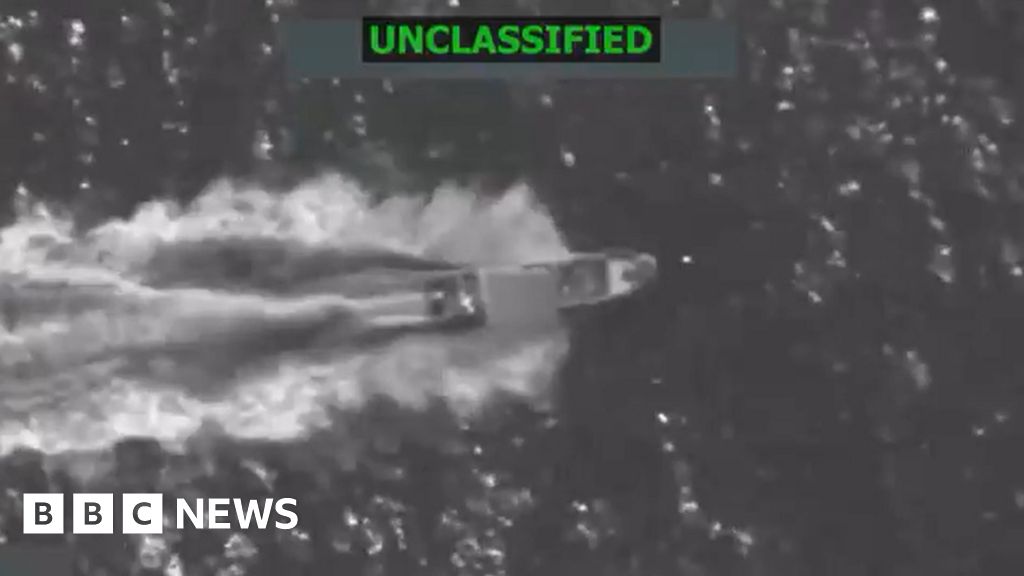
US kills three in second strike on alleged drug boats in the Pacific
US forces have struck a second vessel alleged to be carrying drugs in the Pacific Ocean, amid an escalating US campaign against seaborne drug smuggling.
Three people were killed and no US forces were harmed in the strike on Wednesday, Defence Secretary Pete Hegseth said. It came hours after the US struck another boat in the Pacific, killing two people.
Colombia’s government has denounced the US for carrying out strikes on vessels close to its coast, saying the American action was “like applying the death penalty in a territory that is not yours”.
Wednesday’s strikes were the first in Pacific waters, as most previous attacks were in the Caribbean.
“These strikes will continue, day after day. These are not simply drug runners – these are narco-terrorists bringing death and destruction to our cities,” Hegseth posted on X.
The post was accompanied by a video that appears to show a boat catching fire after being struck by a US bomb.
Floating items are then seen in the water, before they appear to be targeted by a second air strike.
The Colombian deputy foreign minister, Mauricio Jaramillo, said the strikes were “disproportionate and outside international law”.
He told the BBC’s Newsday programme that those aboard had “no possibility to defend themselves”.
He added that there was “no process, no judicial order” and urged the US to instead co-operate with Colombia in the fight against drug trafficking.
US President Donald Trump has said he had the legal authority to continue bombing boats in international waters, but said he may go to the US Congress if he decided to expand the targets to include those on land.
He said his administration was “totally prepared” to expand the anti-drug operations onto land, which would mark a significant escalation.
The expansion of these strikes into the Pacific Ocean is significant. It is a far greater drug trafficking sea route than the Caribbean so, in that sense, this strike appears more consistent with the US justification.
However, it is still widely believed that these strikes are not only about drug trafficking but also about putting military pressure on the government of President Nicolás Maduro in Venezuela.
He is a longtime foe of Donald Trump who has long accused him of being the leader of a drug-trafficking organisation, something he denies.
At least 37 people have been killed in the US strikes on alleged drug boats, including a recent strike on a semi-submersible vessel in the Caribbean.
Two men survived that strike last week, and were repatriated to Colombia and Ecuador.
Ecuador’s government later released its national – identified as Andrés Fernando Tufiño – saying there was no evidence of wrongdoing. The other man, from Colombia, reportedly remains hospitalised.
Both Colombia and neighbouring Ecuador have significant Pacific coastlines that experts say are used to funnel drugs north towards the US through Central America and Mexico.
US estimates from the Drug Enforcement Administration (DEA) indicate that the vast majority of cocaine bound for US cities passes through the Pacific.
Drug seizures in the Caribbean – where the bulk of confirmed US strikes have so far taken place – account for a relatively small percentage of the total, although US officials have said it is rising.
To date, US officials have offered few details on the identities of those killed in the strikes or what drug trafficking organisations they allegedly belong to.
Around 10,000 US troops, as well as dozens of military aircraft and ships, have been deployed to the Caribbean as part of the operation.
First Appeared on
Source link






